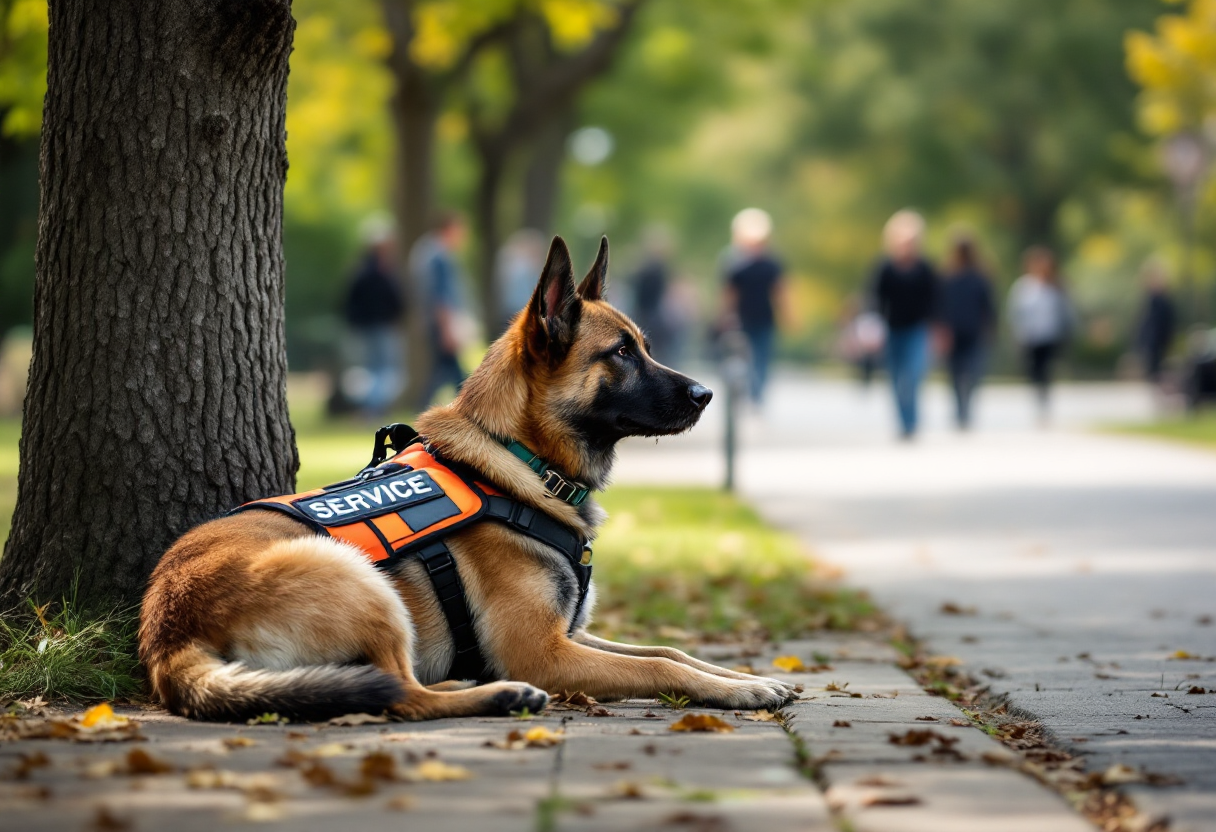Table of Contents
The vital role of service dogs
Service dogs are more than just pets; they are trained companions that provide essential support to individuals with disabilities. For many, like Aaron Symonds, a service dog can mean the difference between independence and reliance on others.
Symonds, who suffers from epileptic seizures due to a brain injury, has a golden retriever named Kimber who is trained to detect these seizures. Kimber’s presence is not just comforting; it is crucial for Symonds’ safety. She has alerted him to impending seizures, allowing him to take precautions and avoid injury.
This bond highlights the significant role service dogs play in enhancing the quality of life for their handlers.
Challenges faced by service dog handlers
Despite the legal protections in place for service dogs, many handlers face challenges when navigating public spaces.
Symonds has experienced harassment while using public transit with Kimber. He recounts instances where fellow passengers have questioned his right to have a service dog on the bus, often giving him disapproving looks or outright telling him to leave. This stigma can discourage individuals from using public transportation, which is often their only means of mobility.
The emotional toll of such experiences can be overwhelming, especially when the handler knows that their service dog is there to help them, not to cause disruption.
Legal protections and public awareness
Under provincial laws, service dogs are granted access to public spaces, including restaurants, theaters, and public transportation.
However, awareness of these rights is not universal. Many people are unaware of the legal protections that service dogs and their handlers have, leading to misunderstandings and conflicts. It is essential for the public to recognize that service dogs are not just pets; they are working animals that provide necessary assistance.
By fostering a culture of understanding and respect, we can create a more inclusive environment for individuals who rely on service dogs.
Encouraging empathy and understanding
As we move toward a more inclusive society, it is crucial to encourage empathy and understanding towards those who depend on service dogs. These animals are trained to perform specific tasks that help their handlers navigate daily life. For many, like Symonds, having a service dog is not a luxury but a necessity. It is vital for the public to remember that these individuals are not seeking attention or special treatment; they are simply trying to live their lives with the support they need. By educating ourselves and others about the importance of service dogs, we can help reduce stigma and promote a more compassionate society.




